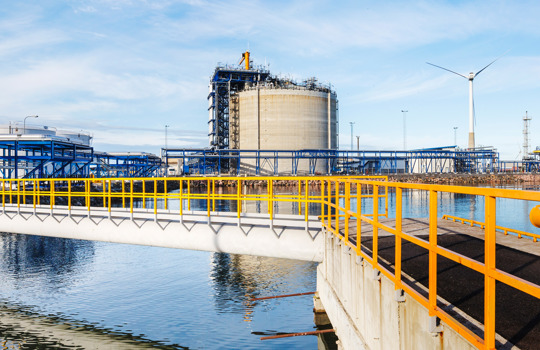As Fit for 55 comes into effect regulation favours biomethane
A clear political will to push for more biomethane is now supported by more and more EU legislation. Though much work remains both on the general and detailed level Gasum is more confident than ever that biomethane is key for the future. The Fit for 55 package, the REPowerEU plan, FuelEU Maritime and EU ETS for shipping are all initiatives that will result in drastic change in the coming years. What do they mean and what impact will they have?
It has only been a little over two years since the European commission launched the extensive Fit for 55 package with the aim of reducing the EU’s emissions of greenhouse gases by 55% to 2030. Even though much work remains before we see the entire package come through the democratic process there are several parts that have already been approved by the council and the parliament. As this happens it becomes clear that biomethane emerges as a green solution that will benefit from the new regulations.
We have already seen that there has been a dramatic shift in biomethane interest over the past year. In May 2022, the European Commission presented the REPowerEU Plan, which includes a specific Biomethane Action Plan aimed at stimulating the renewable gas value chain and achieving the production of 35 billion cubic meters of biomethane by 2030. In October 2022, the European Commission, Member States, and industry leaders (including Gasum) launched a Biomethane Industrial Partnership (BIP) to support the achievement of the EU's biomethane production target for 2030 and create the preconditions for a further ramp up of its potential towards 2050.
What we can now see happening is that the laws that are being passed support biomethane as being key to reaching the Fit for 55 goals. For example, the FuelEU Maritime was passed in July of this year. This legislation aims to reduce the emissions of greenhouse gases from the European shipping industry. Also, the trading of emission rights has been changed to include more sectors such as land-based traffic into the European Emissions Trading System (EU-ETS 2), and the inclusion of shipping in the existing EU-ETS 1. These are now obliged to buy emissions rights.
These three important laws dramatically improve the possibilities of biomethane realising its full potential. The initiatives aim to reduce the CO2-emissions in shipping and land-based traffic, and when companies work to comply with the new laws biomethane offers a fully formed and ready pathway to decarbonisation. A pathway that is extended to the foreseeable future through the emergence of E-LNG (electro-LNG made from hydrogen and biogenic carbon) as the hydrogen market takes off.
For Gasum this is proof that our strategy and belief in biomethane is well founded. Taken together the different initiatives and regulations coming out of the EU will greatly strengthen the role and importance of biomethane. By 2030 we will see a much larger European market for biomethane both in supply and in demand.
However, much now remains to be done in the adaptations of the laws and the implementation of the systems that will give directions as to how this will be done in practice. National agencies and authorities are now busy forming guidelines and busy adapting the directives into national legislation. This work is extensive and crucial. At Gasum, and together with our colleagues within the industry we are working hard to assist the authorities in this.
Through our new strategy we have clearly shown that we are focusing on making biomethane a large-scale part of the green transition. By 2027 we aim to make 7 TWh of biomethane available for our customers. This will be done through an ambitious investment plan in our own biomethane production, and in the import of much more biomethane from the growing European market.
In conclusion the future favours biomethane, and as one of the biggest producers in the Nordics we welcome this and stand ready. Much remains to be done both on the overlaying and detailed levels, and we are part of that journey. We are ready to provide green solutions to players in the maritime, industry and traffic segment.
Column writer Johan Englund is Public Affairs Manager at Gasum.



